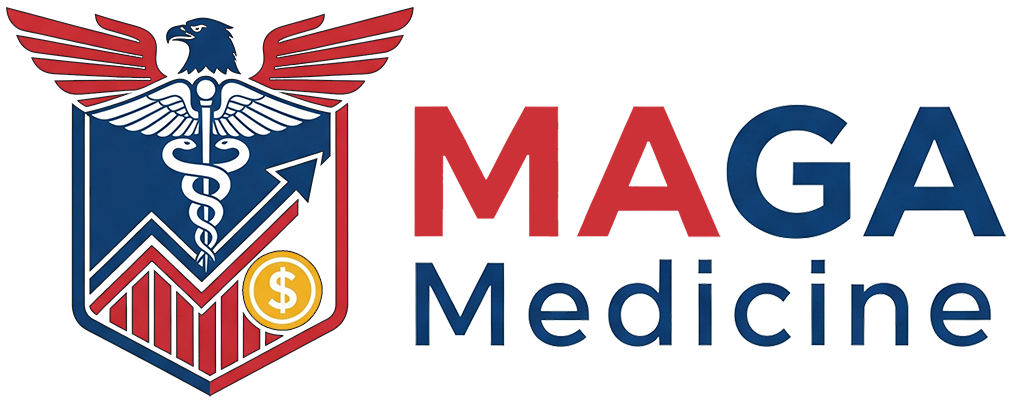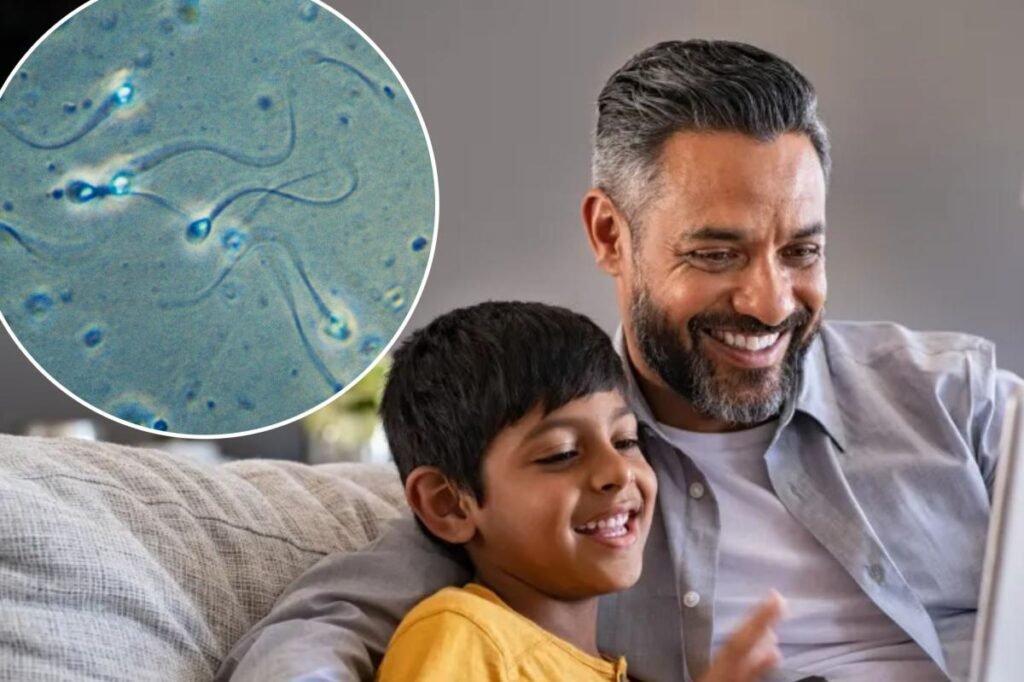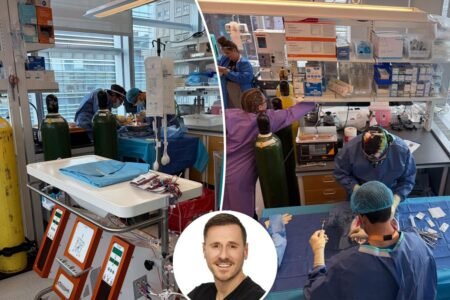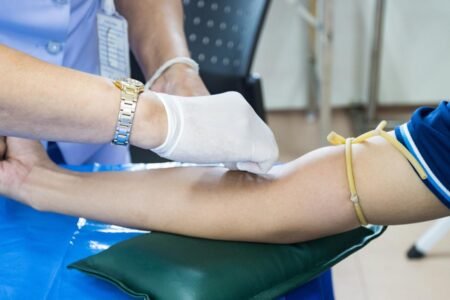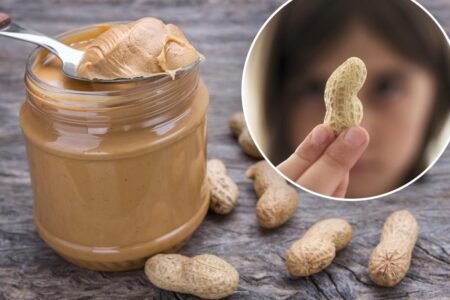While whiskey, real estate portfolios and emotional intelligence tend to improve with age, sperm does not.
New research suggests that your spunk does indeed sour with time — at least in terms of how harmful, age-related mutations can affect your offspring.
Publishing in the journal Nature, researchers in the UK tracked the sperm samples of 81 healthy men between the ages of 24 and 75.
Using a high-accuracy technique called NanoSeq, the team found that mutations accumulate in accordance with age, meaning the older men get, the more subpar their semen becomes.
The team identified more than 40 genes that cause sperm stem cells to mutate, a genetic phenomenon known as “selfish sperm.”
The study measured the proportion of sperm carrying disease-causing mutations and reported the following age-related increases:
- Early 30s (26–42 years): Approximately 2% of sperm carried disease-causing mutations.
- Middle-Aged (43–58 years) and Older (59–74 years): This proportion rises to between 3% and 5%.
- Age 70: The percentage of sperm carrying disease-causing mutations was approximately 4.5%.
The rate of accumulation of these mutations was found to be 1.67 mutations per year.
According to these findings, age 43 is when dude seed truly starts to sour.
Experts note that these findings indicate an increased risk that older fathers or those planning to have children later in life should be aware of.
“Our findings reveal a hidden genetic risk that increases with paternal age,” said Professor Matt Hurles, director of the Wellcome Sanger Institute and study co-author. “Some changes in DNA not only survive but thrive within the testes, meaning that fathers who conceive later in life may unknowingly have a higher risk of passing on a harmful mutation to their children.”
What’s most concerning about this latest study is that researchers found that specific harmful mutations not only accumulate with age but are also favored during sperm production.
This means sperm that carry these mutations out-compete and multiply faster than normal sperm cells.
That’s driving a 2 to 3-fold increased risk of transmitting known disease-causing mutations.
These mutated genes are associated with developmental disorders and inherited cancer predisposition syndromes.
The mutations that increase most sharply with paternal age are linked to severe neurodevelopmental disorders in children, such as autism spectrum conditions.
All of this is especially relevant today as older fatherhood is on the rise: The likelihood of being a post-40 pater familias went from 4.1 percent in 1972 to 8.9 percent in 2015.
A 2024 analysis found that fathers over 40 had a 51% greater chance of having a child diagnosed with autism compared to those under 30.
In this latest study, so-called selfish sperm was confirmed to be a root cause of rare, dominant congenital syndromes like Apert syndrome, Noonan syndrome, and Costello syndrome.
While the results of this latest study are concerning, the team says more research is called for. They also note that although the number of sperm carrying harmful mutations increases with age, not every one of these mutations could lead to conception or pregnancy, as some may prevent fertilization and others could cause miscarriage.
Read the full article here
